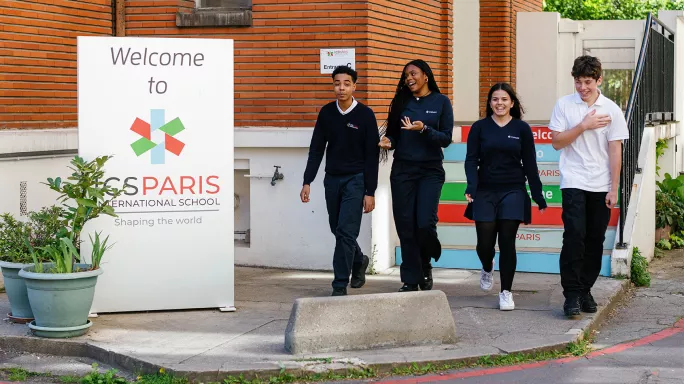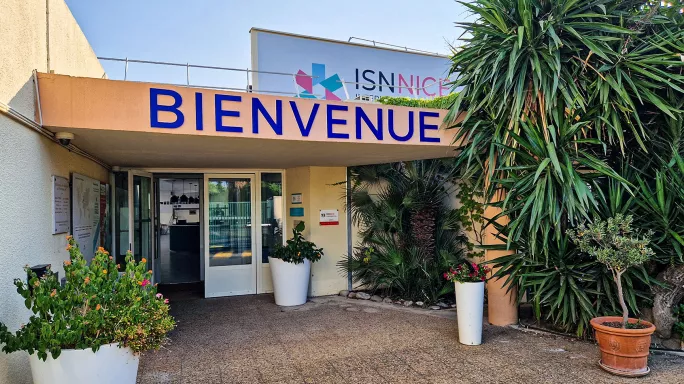
- Home
- Analysis
- Specialist Sector
- The view from France: A buoyant market - but Brexit still casts a shadow
The view from France: A buoyant market - but Brexit still casts a shadow

From the urban metropolis of Paris over the snow-topped Alps and down to the Mediterranean coast, France is a geographically varied country, with a lively international school landscape to match.
With 165 international schools (an increase of 7 per cent since 2020, according to ISC Research), the market is fairly stable, offering an international education to a slowly increasing number of French families and a majority of expatriates who moved to Europe’s second largest economy for work.
Indeed, some schools were set up specifically to cater for this expat need, such as the International School of Toulouse, an International Baccalaureate (IB) school led by Rachel Leonard, which was founded in 1999 by British Aerospace, now Airbus, for the children of its employees. It remains an Airbus business, educating around 520 children, most of whose parents work for the company.
To find out more about what it’s like working in an international school in France, Tes spoke to four leaders about five key themes. Here’s what they told us.
5 things about international schools in France
1. Behaviour
Student behaviour at the International School of Toulouse isn’t particularly different from that at other international schools, says Leonard - who would know, having previously taught in Hong Kong and Singapore. “With globalisation, the issues are the same,” she says.
Angela Hollington, head of school at ICS Paris, which educates students of 70 nationalities in the capital’s centrally located 15th arrondissement, concurs.
“Obviously, we don’t have a school for angels, and there are some issues. But it’s just the same as in any other international school,” she says. “We say to students, ‘We’re all here to learn together and that’s our focus.’”
Four hundred kilometres south, David Johnson, director of the International School of Lyon, also an IB school, has a positive experience: “The behaviour of the students is very good...In comparison to state schools, it’s completely different.”
Johnson puts this down partly to the type of families who send their children to the school. Among its 300 students, representing 47 nationalities, “a lot of their parents are working for multinational companies or non-government or intergovernmental organisations” - such as Interpol and the World Health Organisation, which have centres in Lyon.
“The parents tend to have been through higher education themselves, and the fact they prioritise education helps to ensure that students are prioritising it as well,” says Johnson.
All this being said, there are natural challenges that come with international schooling, adds Hollington, who estimates that a third of her students stay at ICS Paris for just three years before moving elsewhere due to the nature of their expat parents’ work.
This transience means there can be a “culture shock” when children arrive in Paris, having never lived in a European city before. “If you have a child coming in from, say, India, where it’s a totally different way of learning, of dress, the whole environment, it takes students a while to settle in”, which can cause them stress, sometimes leading to behavioural challenges,” Hollington says.
The school operates a “buddy system”, matching children with peers who speak their native language if they don’t have good English. “They adapt very, very quickly. As soon as they have friends, they’re fine,” adds Hollington.
2. Safeguarding
All the leaders stress the importance of safeguarding in their schools, detailing how when recruiting new staff they carry out standard background police checks and contact prior employers for references - “not just by email, but by phone as well”, says Johnson.
Hollington says she thinks her school’s robust safeguarding process is similar to what would be expected in the UK, outlining how Globeducate - which runs ICS Paris - has a head of safeguarding working across the 65-school group, while ICS Paris itself has a designated safeguarding lead (DSL) and trains all of its teachers in this area.
She adds that what might be different is the degree to which schools talk to parents about safeguarding. “We have a lot of parent seminars on being safe online, being safe when travelling... We keep parents up to speed because parents don’t always know,” Hollington says.

The picture is similar in Toulouse, where Leonard says her school’s DSL works with students alongside the wellbeing counsellor, and all staff complete regular safeguarding refresher training on specific topics.
“One [area of training] that really stuck with me was affluent neglect, which we had in Asia,” says Leonard, referring back to her previous roles.
“Affluent neglect was a real problem. We had privileged families, and it’s similar here. We remain an expensive school, therefore students attending our school come from wealthy backgrounds. Does that mean that everything is rosy at home? Not necessarily. It’s about training staff to look at aspects that they would not have considered.”
3. Recruitment and retention
The appeal of working in the South of France is evident, says Mel Curtis, director general of the International School of Nice, which is also an IB school.
“We get sunshine eight, nine months of the year and a mild winter climate. You’ve got the Mediterranean just there. You’ve got Monaco not that far away, Italy just over the border. You’ve got the whole of the Cote d’Azur, and then at the top end you’ve got the Alps… it’s fabulous,” she says.
Unsurprisingly then, recruitment is not a problem. “We get a lot of people applying,” Curtis says, adding that when she worked in Dubai she hired a lot of “singles in their mid-20s” who stayed for just a couple of years. In Nice more staff are older teachers who have settled in the city with their family. “There’s not a lot of mobility - once they’re in, they like to stay.”
In Toulouse, Leonard says, it is much the same: “Once they come here, they don’t leave.”
Her school is located on the outskirts of the city, surrounded by villages. “What’s not to like? The weather’s nice, the food’s lovely, you get a good package, a nice house - many houses have a swimming pool. Life is very good, by all accounts,” says Leonard.
But for UK teachers wishing to apply, an already competitive application process has been complicated by Brexit, which Hollington says “has caused a mild irritation”.
British citizens who don’t have an EU passport now require a visa to work in France. The school can arrange that, but it takes several months, meaning that candidates really need to apply early in the recruitment window.

As Curtis advises: “Anybody from the UK, from the end of April you cannot get a visa in time [for a September start]. It’s impossible.”
This means leaders are now making some blunt choices, as Hollington explains: “If I have a British teacher and an EU teacher and they’re the same calibre, I go for the EU because I know it’s going to be easier.”
In addition to a visa, Curtis says, the French government now expects teachers to have a certain standard of French. Her school helps to set teachers up with language lessons in advance of and after their arrival. “You don’t need to be fluent, as it’s an English instructional school, but once you’re in school, we all switch from English to French all the time” - so some bilingual skills are helpful for staffroom socialising, she adds.
Johnson in Lyon also raises this point about language, although he says the rule hasn’t yet come under scrutiny. The French government “has not required us to give proof” that all staff can speak French, he says.
Even so, adds Hollington, “people should try to speak French. It goes back to being open-minded: why would you come to Paris and not want to learn French?”
4. Rules and regulations
But there are some areas where the French government is much more stringent.
In 2018 the state tightened restrictions on private schools under the Gatel law, which came about because of the role the government believed schools were playing in the radicalisation of young people.
Since then the government has pulled its funding from some religious private schools, including the country’s largest Muslim school, in a concerted effort to uphold laïcité - keeping religion out of the public sphere.
These changes have impacted all private schools, including the International School of Lyon, says Johnson. “They increased, significantly, the number of state inspections that take place of private schools. Now we have to register with the academic authorities for our region, and we have to keep them up to date with all the students who are registered with us.”
All this additional admin is an extra pull on time, Johnson says: “It’s a bureaucracy issue that could become quite a headache.”
Leonard concurs, describing France as having “a lot of red tape”. “You have to consult with all the different authorities - you have to seek a permit, for example, for a lot of the [building] work you’re planning to do. The intent is to make sure you don’t go wild. I get that. But the regulations feel a lot heavier here than in Asia,” she says.
This also extends to employment contracts, says Hollington, whose school in Paris follows French labour laws and meets monthly with representatives of the union - a movement that is historically strong in France.

She adds that under the French state system, teachers are paid only for the hours they teach classes and are free to go home outside this time, meaning that meetings are not required working time.
ICS Paris’ contracts are run under this system, but “obviously with the IB you have to meet, to collaborate, to plan together...so we pay our teachers [extra] for meeting times” - to ensure that they are understood as compulsory, Hollington explains. “We work with the rules that we have, which works out very well for us.”
But this isn’t the case everywhere, with Leonard explaining that her teachers “are contracted to come on site every morning [and stay] until the end of the school day” - apart from on Wednesday afternoons, which is traditionally when French students attend clubs outside school.
It’s similar in Lyon, where Johnson says “it’s essential to who we are as a school that teachers are there throughout the day”.
Curtis adds that another French influence on the international school sector comes in the curriculum itself, explaining that as part of the inspection process the government checks that a school is teaching civic education.
“That’s the history of France. Do you know what Liberté, égalité, fraternité is? Do you know who the prime minister is? It’s about understanding what it is like to live in France, rather than living as an expat in a bubble.”
5. Competition and cooperation
Finally, what do these leaders think is the state of play with regards to competition and cooperation in the international schools market in France?
In Nice the situation isn’t particularly competitive, says Curtis, because other schools in the area offer different things - for example, the British school offers A levels, while another is bilingual. “We don’t cannibalise each other,” she says.
Across the country there are numerous networks connecting leaders, including the English Language Schools Association France, of which Johnson is vice-president. “We work together as a group to organise professional development for our teachers, to organise meet-ups for our different schools,” he says, adding that his school is also a member of the Council of International Schools.
Numerous organisations in France and worldwide, including ICS, which has schools in locations including London and Rome; Globeducate; and, indeed, the IB itself give schools in the country the opportunity to learn good practice from one another.
Curtis says this means that an international school “can be creative, innovative, entrepreneurial - but you’re not on your own”.
Hollington agrees, saying that such networks allow her school and others to collaborate: “We learn from each other.”
You can now get the UK’s most-trusted source of education news in a mobile app. Get Tes magazine on iOS and on Android
Register with Tes and you can read five free articles every month, plus you'll have access to our range of award-winning newsletters.
Keep reading for just £4.90 per month
You've reached your limit of free articles this month. Subscribe for £4.90 per month for three months and get:
- Unlimited access to all Tes magazine content
- Exclusive subscriber-only stories
- Award-winning email newsletters
You've reached your limit of free articles this month. Subscribe for £4.90 per month for three months and get:
- Unlimited access to all Tes magazine content
- Exclusive subscriber-only stories
- Award-winning email newsletters
topics in this article



